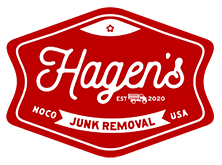Your Expert Guide to Efficient Light Demolition Services
Are outdated structures or the need for a major renovation overwhelming you? Without proper management, light demolition projects can quickly spiral into unexpected costs, delays, and safety hazards. Many people find themselves struggling with heavy lifting, iron bars, and debris, all while navigating the complexities of the demolition process.
Fortunately, understanding how to handle light demolition efficiently can transform these challenges into manageable tasks. This guide will provide practical advice on executing light demolition services, selecting reliable contractors, and avoiding common pitfalls like hidden fees. Ready to approach your next demolition job with confidence? Dive into our expert guide to ensure a seamless and successful project.
What is Light Demolition?
Light demolition involves removing non-structural elements or components that are not integral to a building’s foundation. This includes tasks like deck removal, partition dismantling, and the removal of old fixtures. Unlike heavy demolition, which requires extensive machinery and focuses on major structural changes, light demolition deals with smaller-scale projects. These projects can often be completed without heavy equipment or extensive manual labor.
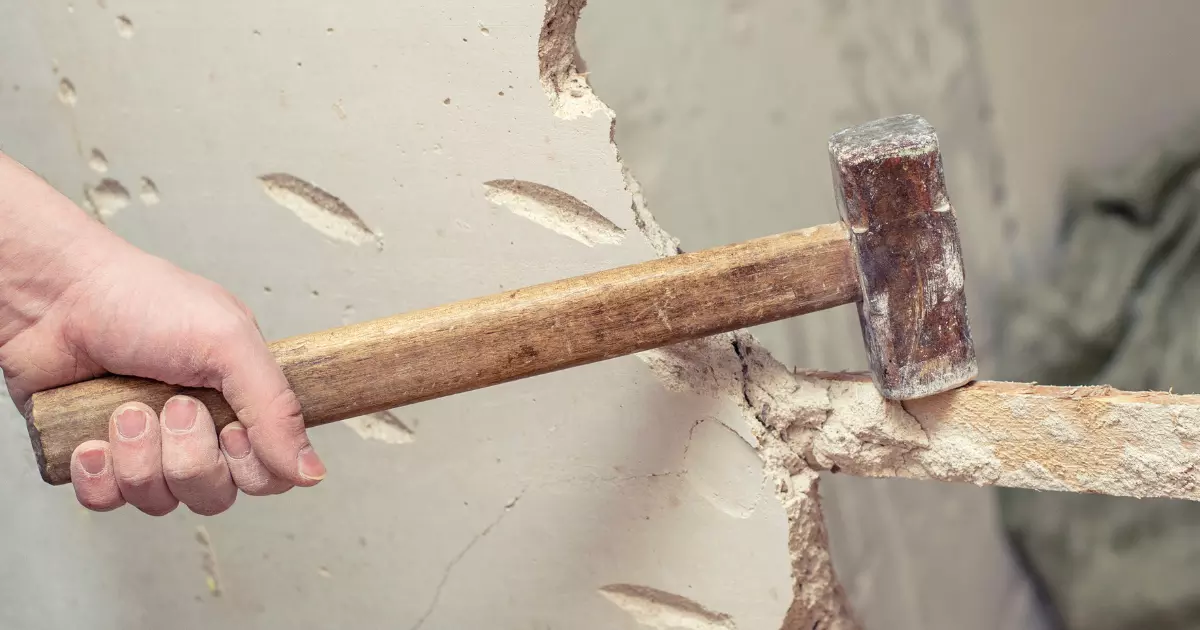
Typical light demolition projects include tearing down interior walls, removing outdated fixtures, and preparing spaces for renovations. It also involves junk removal services to manage the removal of construction debris effectively. Whether clearing an old kitchen or prepping a yard for new landscaping, light demolition prepares the area for the next phase of your project, without the complexities of larger demolition processes.
How Does Light Demolition Differ from Heavy Demolition?
Light demolition targets non-structural components like interior walls and decks. It does not affect a building’s foundation or overall structure. This type of demolition uses less extensive equipment and labor. In contrast, heavy demolition involves major structural changes or complete teardowns, requiring heavy machinery such as excavators and cranes to manage the job’s scale and complexity. Light demolition, on the other hand, employs simpler tools and methods to address specific areas or components within a property.
How Do You Plan for A Successful Light Demolition Project?
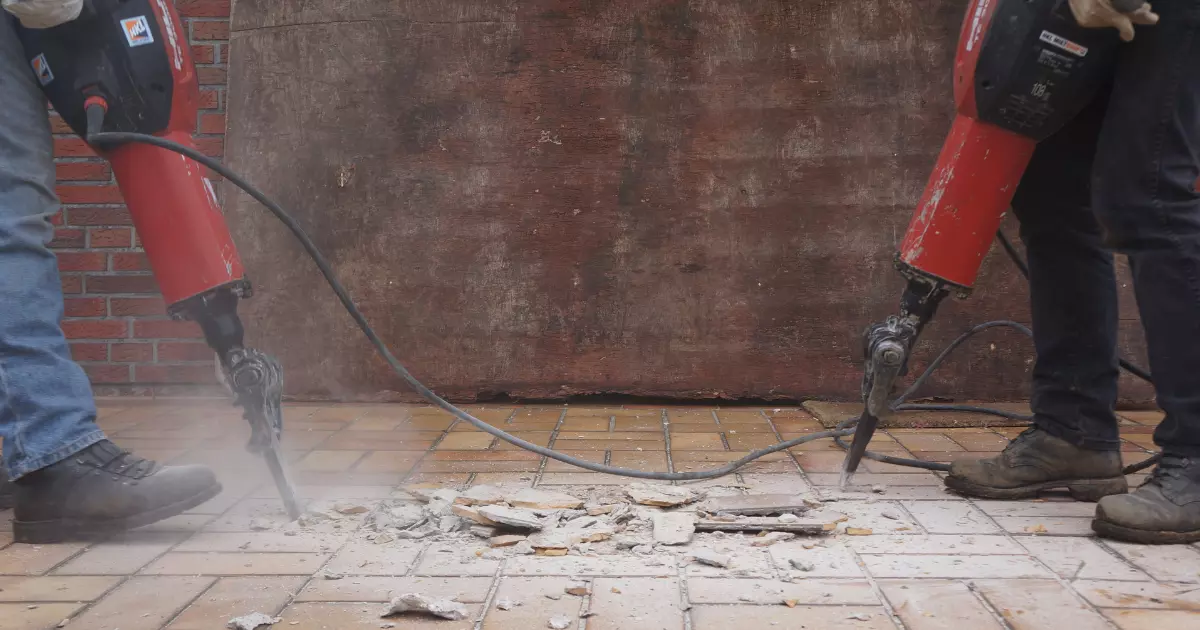
Planning is key to executing a smooth and effective light demolition project. Proper preparation ensures that the process is efficient, safe, and achieves the desired results. Here’s a breakdown of the essential steps to prepare for a seamless demolition experience.
1. Assess The Area and Define The Scope
Start by evaluating the site to identify which structures or elements need removal. Clearly outline the project’s goals to determine the work required and set a clear direction.
2. Create A Detailed Plan
Develop a plan that includes a timeline, budget, and resource list. Detail each phase of the process, from preparation to cleanup, to manage time and costs effectively.
3. Communicate with Stakeholders
Engage property owners, contractors, and local authorities to align expectations and secure necessary permits. Clear communication helps prevent misunderstandings and ensures everyone is on the same page.
4. Secure Permits and Address Safety Considerations
Verify permit requirements to comply with local regulations and building codes. Implement safety measures by providing protective gear and establishing safety protocols. Define the project scope clearly to prevent scope creep and ensure all participants understand their roles.
5. Organize Tools and Equipment
Light demolition involves various tools and equipment. Essential tools include sledgehammers, pry bars, and reciprocating saws. Safety gear such as gloves, goggles, and dust masks is crucial for protection. Use debris chutes and trucks for efficient waste removal and smoother processes.
What are The Best Practices for Safe and Efficient Light Demolition?
Implementing best practices in light demolition is essential for ensuring safety and efficiency. By following established protocols, you minimize risks and streamline the entire process. Effective techniques protect everyone involved and reduce downtime.
Follow Safety Protocols
Begin with a thorough site assessment to identify hazards, like exposed wires or unstable structures. Ensure workers wear helmets, gloves, and eye protection. Establish and regularly review safety protocols and emergency procedures to manage risks effectively.
Maximize Efficiency
Plan the demolition process carefully, assigning tasks based on team strengths. Use the appropriate tools and schedule activities during off-peak hours to minimize disruptions. Clear communication helps maintain workflow and reduce delays, keeping the project on track and within budget.
Handle and Dispose of Debris Properly
Sort debris into recyclable and non-recyclable categories to minimize environmental impact. Use debris chutes or containers to manage waste flow and keep the site organized. Partner with a reliable junk removal service to ensure timely and compliant debris disposal. Effective management reduces clutter, enhances safety, and adheres to local regulations.
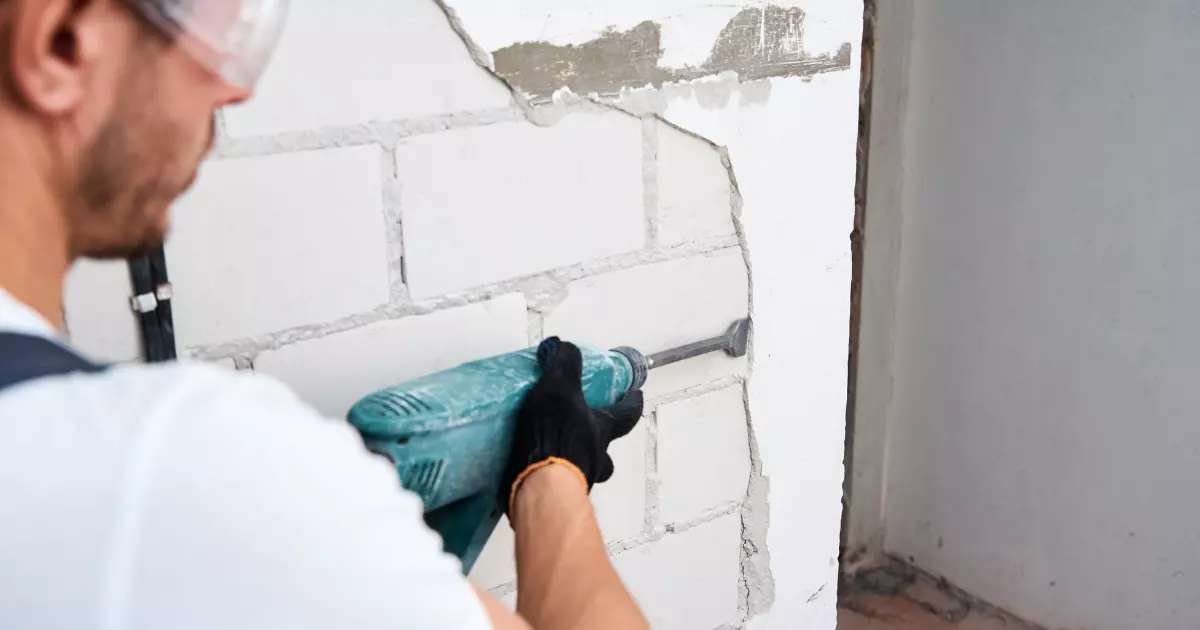
What are The Common Mistakes to Avoid in Light Demolition Projects?
Starting a light demolition project can be a rewarding endeavor, but it requires careful planning and execution to ensure safety and efficiency. Without proper preparation, even the smallest tasks can become challenging and potentially hazardous. Understanding the common pitfalls can help you avoid unnecessary complications and achieve a smooth, successful demolition. Let’s dive into some frequent mistakes and how to sidestep them, so your project can proceed seamlessly and safely.
Skipping the Planning Phase
Inadequate planning is a common mistake in light demolition projects. Without a clear plan, you may face unexpected delays or increased costs. Proper preparation involves defining the project scope, understanding necessary permits, and organizing debris removal. Create a detailed plan and schedule to guide your demolition project and ensure everything proceeds smoothly.
Neglecting Safety Protocols
Ignoring safety protocols can lead to accidents and injuries during light demolition. This includes not using appropriate safety gear or failing to secure the work area. Implement safety measures to protect workers and property. Ensure all team members use protective equipment and follow established procedures. Regular safety audits help prevent such issues.
Overlooking Permit Requirements
Many residential demolition projects require permits. Ignoring this can result in fines or work stoppages. Before starting, check local regulations to determine if permits are needed. Secure all necessary permits and keep them accessible throughout the project. This ensures compliance and avoids legal complications.
Underestimating Debris Removal Needs
Underestimating debris can lead to clutter and inefficiencies. Ensure you have sufficient truck space and a plan for debris removal. Use professional junk removal services to handle large volumes of waste efficiently. Properly sorting and disposing of debris maintains a clean site and reduces the risk of additional costs or delays.
Choosing Inexperienced Contractors
Hiring inexperienced contractors can result in poor workmanship and increased risk. Verify that your chosen demolition company has a solid track record and experience in similar light demolition projects. Request references and review past work to ensure they meet your standards. An experienced team manages the demolition process more effectively and handles unexpected issues efficiently.
Ignoring Site Preparation
Proper site preparation is vital for a successful demo job. Failing to clear the area of obstacles, such as iron bars or heavy equipment, can impede progress. Prepare the site by removing any unwanted structures or obstacles before starting demolition. This allows for a smoother workflow and minimizes potential disruptions.
Overlooking Costs and Budgeting
Poor budgeting can lead to unexpected fees. Have a clear understanding of all costs associated with light demolition. Obtain detailed estimates from contractors and factor in potential additional costs for debris removal and other services. A well-prepared budget helps manage expenses and prevents financial surprises.
Why Opt for Professional Light Demolition Services?
Opting for professional light demolition services comes with several advantages. Experts ensure the job is completed safely and efficiently while adhering to all relevant regulations and standards. They handle tasks such as debris removal and heavy lifting, reducing the risks associated with demolition. Professionals are also adept at managing unexpected issues, like hidden hazards or structural complications that may arise during the project.
Additionally, professional demolition contractors streamline the process, saving you time and effort. They use specialized tools and techniques to complete projects quickly and accurately, avoiding costly mistakes and ensuring the area is prepared for the next renovation phase. By relying on a team of experts, you sidestep the hassle of managing debris and navigating the complexities of the demolition process on your own.
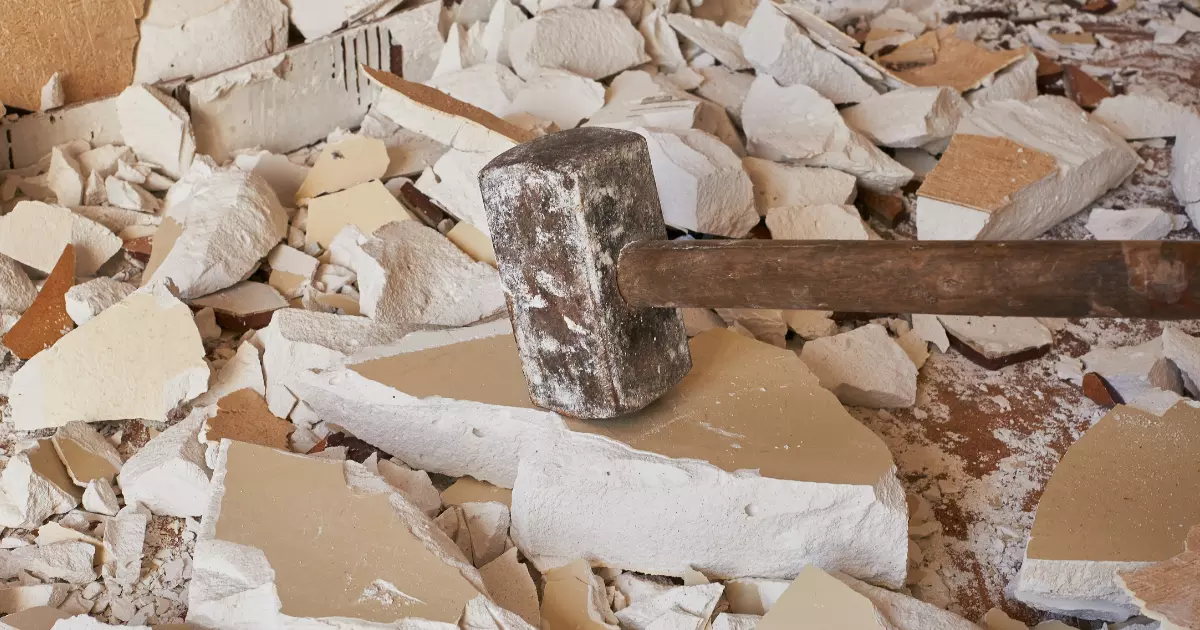
How Can I Choose The Right Light Demolition Service Provider?
Choosing the right light demolition service provider is essential for a smooth and successful project. The right provider will impact not only the efficiency of the work but also its safety and overall cost. To make the best choice, consider these important factors to help you select the best service provider for your needs.
Experience and Expertise
Experience and expertise are crucial when choosing a demolition provider. An experienced provider will have a proven track record in handling similar projects. This experience often means they can work more efficiently and handle challenges better. For example, a provider with extensive experience in residential demolitions is likely to handle your home project with greater expertise and precision.
Licensing and Certifications
Licensing and certifications are essential for ensuring the provider meets industry standards. Proper licensing confirms that the provider operates within legal and safety guidelines. Certifications indicate a higher level of professionalism and knowledge. Always verify that the provider holds the necessary licenses and certifications to avoid potential legal issues.
Insurance Coverage
Insurance coverage is a key factor for protecting yourself during the demolition process. A provider with adequate insurance will cover damages or injuries that might occur. This coverage includes both general liability and worker’s compensation. Confirming that the provider has proper insurance will give you peace of mind and protect you from unexpected costs.
Reputation and Reviews
A provider’s reputation and reviews offer valuable insights into their reliability. Checking customer reviews and testimonials helps you understand others’ experiences. Positive feedback often reflects consistent quality and customer satisfaction. Conversely, negative reviews can alert you to potential issues. Choose a provider with a strong reputation and favorable reviews to ensure a reliable service.
Safety Measures
Safety measures are vital for preventing accidents and ensuring a secure work environment. The provider should have clear safety protocols, including proper protective gear and procedures for handling hazardous materials. Effective safety practices reduce the risk of injuries and delays. Ensure the provider has a strong safety record and follows stringent safety guidelines.
Cost and Transparency
Cost and transparency are important for managing your budget effectively. Obtain detailed quotes from multiple providers to compare pricing. Transparent pricing means you understand what you are paying for, avoiding hidden fees. Select a provider that offers clear and upfront cost estimates to stay within your budget and avoid surprises.
Equipment and Technology
The use of modern equipment and technology can enhance the efficiency of your demolition project. Providers with updated tools and machinery can complete the job more quickly and accurately. For example, advanced equipment like hydraulic shears and concrete crushers can streamline the demolition process. Ensure the provider uses current technology for the best results.
Project Management Skills
Strong project management skills are necessary for a smooth demolition process. A provider with good project management will handle scheduling, logistics, and any unforeseen issues effectively. This skill helps keep the project on track and minimizes disruptions. Look for a provider who demonstrates a strong ability to manage complex projects and meet deadlines.
Compliance with Regulations
Compliance with local regulations ensures that the demolition project adheres to legal standards and building codes. A provider who follows these regulations helps avoid fines and legal problems. Compliance also ensures that the work is performed safely and correctly. Verify that the provider is knowledgeable about and adheres to all relevant regulations in your area.
Customer Service
Excellent customer service can significantly impact your overall experience with the provider. A provider with strong customer service will respond promptly to your questions and concerns. They will provide timely updates and support throughout the project. Choose a provider known for attentive and helpful customer service to ensure a smooth and satisfying demolition process.
Wrapping Up
Light demolition is a powerful solution for transforming spaces, from removing unwanted structures to prepping for renovations. By understanding and applying best practices, you ensure a smoother process and achieve better results. Efficiently managing the demolition process enhances safety and streamlines your project, saving time and reducing stress.
If you’re ready to tackle your light demolition project with ease, Hagen’s Junk Removal is your go-to solution. We offer expert light demolition including deck removal, fence removal, hot tub removal, and shed removal. Our team ensures every aspect, from debris handling to managing unexpected issues, is covered with professionalism and efficiency. Experience the difference with our dedicated service that exceeds the standard. Reach out today to discuss your project and see how we can assist in turning your vision into reality. Contact us at 970-581-5361 to schedule your light demolition service. We’re here to help, whether you’re in Fort Collins or other areas in Colorado.
